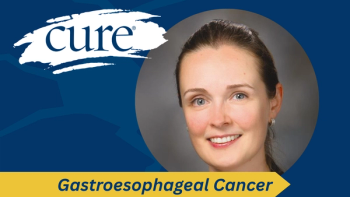
Survey Results Highlight Unmet Needs of Patients with Kidney Cancer Worldwide
An international study of nearly 2,000 patients with renal cell carcinoma exposed many unmet needs across all stages of disease.
More than 40% of patients with renal cell carcinoma worldwide had no understanding of their disease subtype at diagnosis, according to study findings presented during the 2019 American Society of Clinical Oncology (ASCO) Annual Meeting.
Neary 2,000 patients from 43 countries were identified through the International Kidney Cancer Coalition, a federation of 38 affiliated patient organizations representing 1.2 million patients around the world. The researchers aimed to study the unmet needs of patients with kidney cancer, taking a closer look at the geographic variations in patient education, experience and awareness, access to care, best practices, quality of life and involvement in clinical trials. Patients and/or caregivers were asked to complete a 35-question survey either online or in paper form from September to October 2018.
Men (54%) and women (45%) were represented in the study — 1% of patients did not identify gender — and most patients were between 46 to 65 years old (57%). The following types of
Survey results showed that unmet needs exist when it comes to understanding the disease, disclosing
Nearly all patients (96%) self-reported psychosocial impacts of their disease, but only half told their health care team about the effects. “The reasons (of why patients may not share psychosocial impacts) are many and would vary by country and individual, but certainly time and availability of resources would be a factor in many countries,” study author Eric Jonasch, a professor in the Department of Genitourinary Medical Oncology at The University of Texas MD Anderson Cancer Center in Houston, said in an interview with CURE®.
“On a positive note, of those patients who had communicated these issues, 92% of patients found their doctors to be helpful,” he added. “With these findings, we hope that patients and caregivers will feel comfortable expressing that they are having difficulties coping with the disease and that clinicians will have options tailored to each patient's needs. Options might include a referral to psychosocial support services, a social worker or to peer support from a patient organization.”
Researchers also found gaps in clinical trial participation as 70% of patients said they were never asked; however, of those, 89% responded that they would have “fairly likely” participated if asked.
“From the moment of diagnosis, we know that patients and family members are often online to find out more about kidney cancer,” Jonasch said. “Many patient organizations have excellent websites that list clinical trials that are currently recruiting participants — some of these trials are open for patients to enroll before surgery. It's never too early to ask your urologist or oncologist about a clinical trial and whether it might be a good option.”
In addition, the survey revealed age and gender barriers to treatment. For instance, patients under 45 years old had nearly twice as many barriers as patients older than 45 years old at diagnosis. Women also reported experiencing longer delays to diagnosis than men.
The study findings prove that there is still work to do, Jonasch explained. “Our findings on shared decision making suggest we have some way to go to meet our goals of patient-centered health care,” Jonasch said. “Twenty-nine percent of all kidney cancer patients told us that ‘my doctor decided for me’ — and those patients were across all stages of disease and various types of health care settings including major cancer centers.”
The researchers plan to meet with a medical advisory board and patient organizations to learn how they can build action plans. “While we focus on gaps, we also want to better explore the best international practices to see how we can replicate excellent patient-reported experience elsewhere,” Jonasch said.




